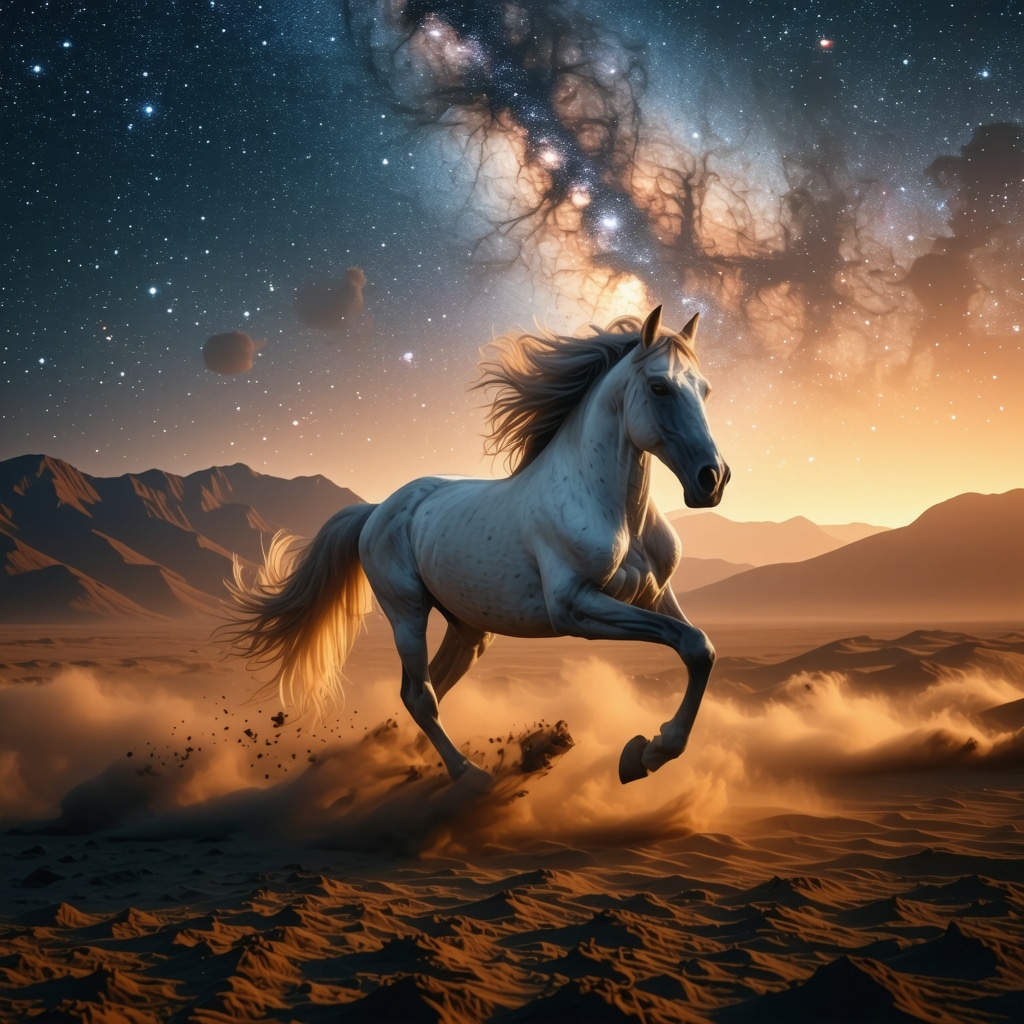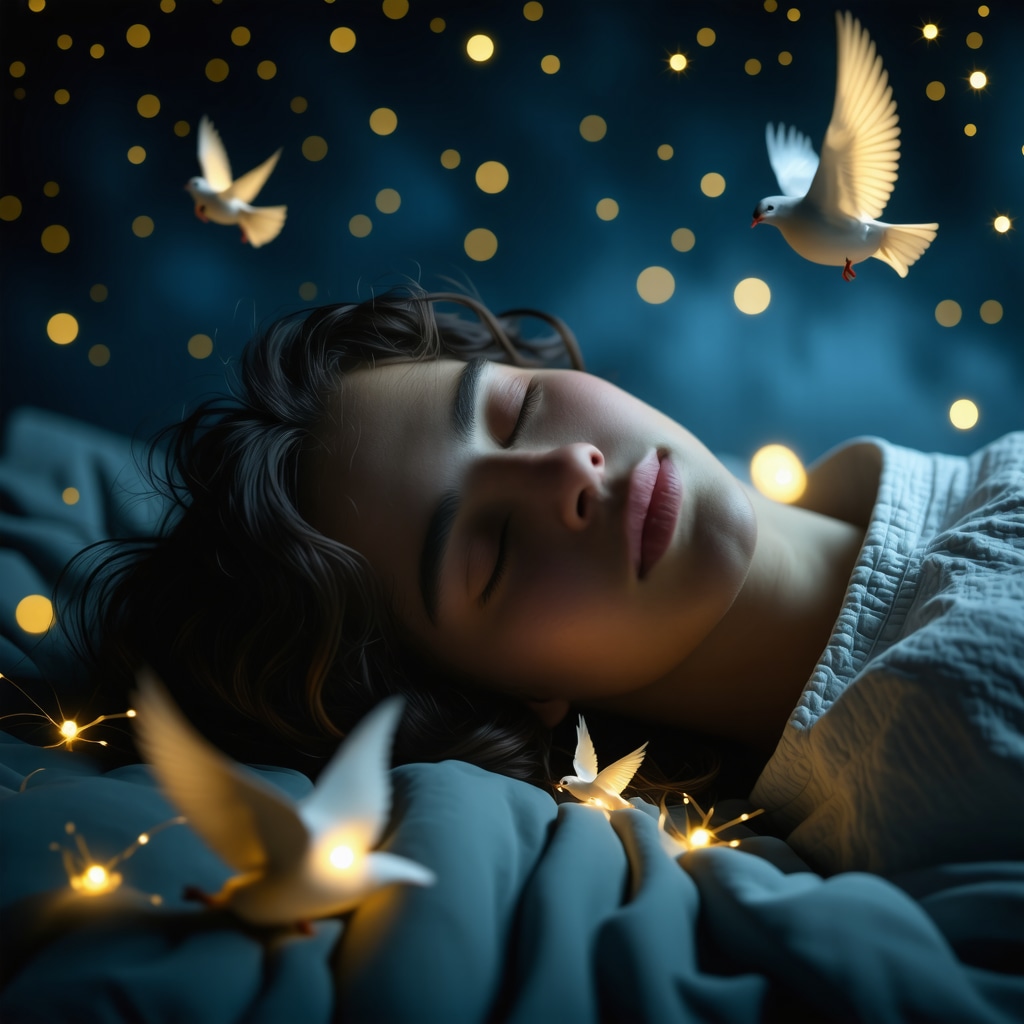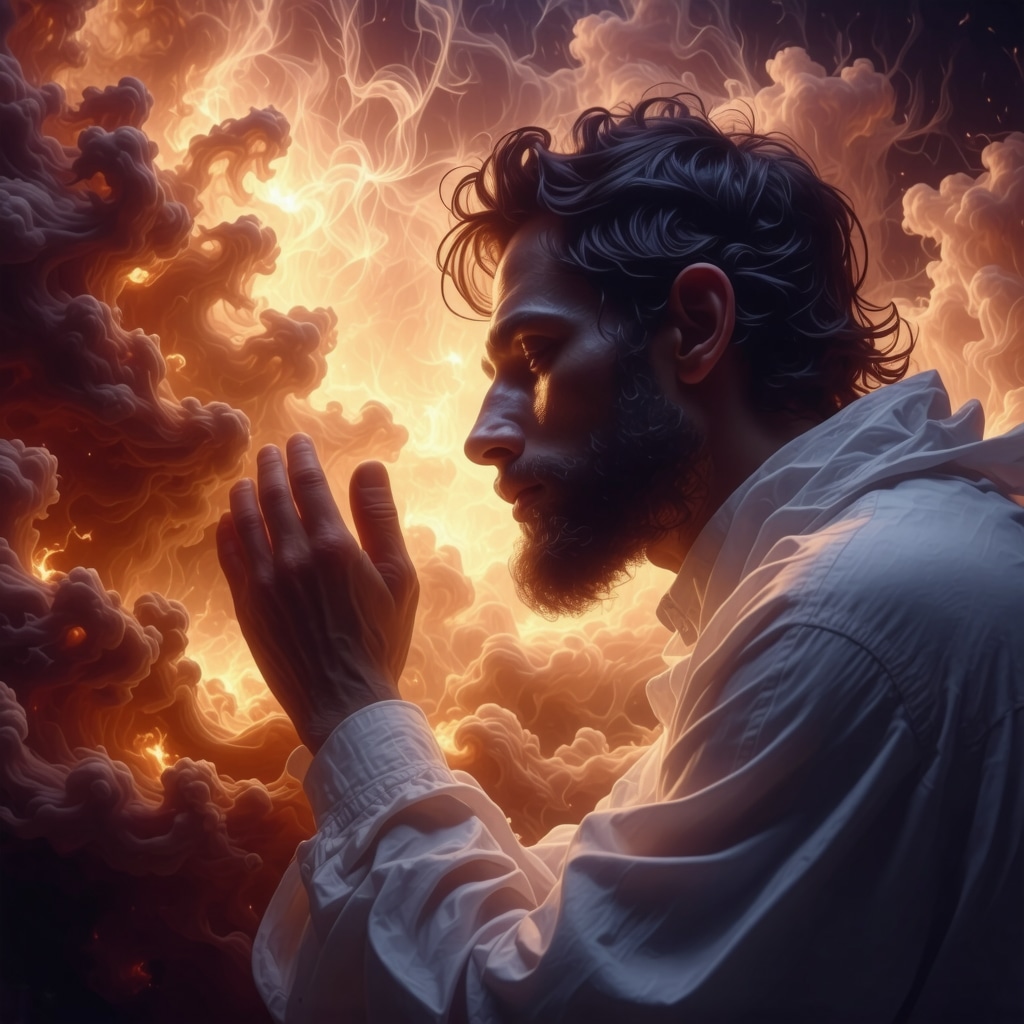Why Are Horses Galloping Through Our Dreams? A Spiritual Ride Awaits
Dreams about konje, or horses, have galloped through the pages of Islamic dream interpretation for centuries, igniting curiosity and spiritual reflection alike. But what does it truly mean to dream of konje in Islam? Is it merely a fleeting image, or does it carry deeper, symbolic weight?
From the swift, powerful steed to the gentle, loyal companion, horses represent a tapestry of meanings woven through Islamic tradition. They often symbolize strength, freedom, and nobility, but, depending on the dream’s context, they can also herald challenges or divine messages. As Ibn Sirin, the renowned Islamic dream interpreter, points out, horses in dreams can reflect a person’s status, ambitions, or inner struggles.
Could a Horse in Your Dream Be a Spiritual Messenger?
Imagine waking up after seeing a horse running freely in your dream. Does this signal a breakthrough in your life or perhaps a warning to be cautious of impulsive decisions? Islamic dream guides often suggest that the horse’s behavior, color, and condition hold clues to its meaning. For example, a white horse might symbolize purity and victory, while a tired or injured horse could hint at obstacles or fatigue in your spiritual or worldly journey.
It’s fascinating how these interpretations resonate beyond the dream itself, inviting us to ponder our own life’s path and spiritual state. For those intrigued by the symbolism of animals in dreams, exploring Islamic dream dictionary insights on animals can offer a richer perspective.
Riding the Waves of Spiritual Guidance: What Can We Learn?
Dreaming of konje in Islam is not just about the horse; it’s about what the horse represents to you personally and spiritually. It beckons us to reflect on our strength, freedom, and the direction we’re headed. Are you harnessing your inner power or letting it run wild?
Moreover, Islamic scholars emphasize that dreams are a form of communication from the unseen world — a bridge to divine wisdom. Engaging with these visions thoughtfully can provide guidance, warnings, or reassurance. If your dream leaves you pondering deeper meanings, you might also find it helpful to explore related spiritual symbols like to dream of konja u galopu in Islam, which delves into the symbolism of horses in full gallop.
How Do You Interpret Your Dreams? Share Your Story!
Dreams are personal, mysterious, and often a little wild — much like the horses that run through them. Have you ever dreamed of konje? What feelings or messages did those dreams stir within you? Share your experiences and interpretations in the comments below; let’s explore this fascinating spiritual journey together.
For further expert insight, Islamic scholar Dr. Israr Ahmed discusses the profound significance of dreams in Islam, highlighting their role in shaping faith and understanding (source: Sound Vision).
The Symbolic Colors of Horses: What Does Each Hue Represent in Islamic Dreams?
In Islamic dream interpretation, the color of the horse in your dream carries profound spiritual significance. For example, a white horse is often associated with purity, success, and divine favor, signaling a positive transformation or victory in one’s life journey. Conversely, a black horse may indicate hidden fears, challenges, or unresolved internal conflicts. Brown or bay horses symbolize strength and reliability, while a spotted or multicolored horse might reflect complexity in personal circumstances or spirituality.
Understanding these color nuances deepens the interpretation of your dream and helps you align its message with your current life situation. For those wishing to explore further, reviewing Islamic dream interpretations of symbolic items can complement the insights gained from horse symbolism.
Are the Actions of Horses in Your Dreams Guiding Your Spiritual Path?
Beyond the color, the behavior of horses in dreams is equally revealing. A horse galloping freely may symbolize unleashed potential and spiritual liberation, whereas a horse that is restrained, tired, or injured could suggest obstacles or suppressed energies. Additionally, riding a horse often denotes control and mastery over one’s life direction, while being thrown off or losing control may warn of vulnerability or the need for spiritual vigilance.
These dream elements encourage self-reflection about how you manage your inner strength and freedom. Are you steering your life’s journey with intention, or are external forces dictating your path? Such contemplations resonate with broader Islamic teachings on self-discipline and submission to divine will.
Could the Presence of a Horse in Your Dream Be an Invitation to Reassess Your Spiritual Journey?
This question invites you to delve deeper into the personal significance of your dream. Horses, as majestic and powerful creatures, often symbolize the soul’s journey and struggles. Their appearance in dreams might be urging you to evaluate your spiritual state, your ambitions, and how you navigate challenges.
Reflect on your current life circumstances: Are you feeling empowered and free, or burdened and constrained? Are there areas where you might need to seek guidance or strengthen your faith? Considering these questions can transform your dream from a mere vision to a catalyst for spiritual growth.
Connecting Dreams of Horses with Broader Islamic Dream Symbolism
Dreams about horses do not exist in isolation; they often intersect with other symbols to enrich their meaning. For example, dreaming of horses alongside natural elements like wind or water can amplify messages about change and purification. Exploring these connections can provide a holistic understanding of your dream landscape.
For an expanded exploration, visit our comprehensive guides such as meaning of dreaming about vjetar (wind) in Islam and to dream of water in Islam. These resources enhance your ability to decode complex dream narratives and align them with your spiritual journey.
Inviting You to Share: How Has Dreaming of Horses Influenced Your Spiritual Insights?
Dreams can be powerful mirrors reflecting our inner world and spiritual dynamics. Have your dreams of horses inspired changes, reflections, or revelations in your faith or life path? Sharing your stories enriches our collective understanding and opens doors to new interpretations.
Join the conversation by leaving your comments below or sharing this article with friends and family who might find value in these insights. Together, we can explore the profound spiritual tapestry woven through our dreams.
For further authoritative perspectives on the spiritual importance of dreams, consider the insights provided by Islamic scholar Dr. Israr Ahmed, who emphasizes dreams as a vital component in nurturing faith and divine understanding (Sound Vision).
Unpacking the Layers: How Horse Behavior Nuances Reveal Spiritual Dynamics in Islamic Dream Interpretation
While the color and presence of horses in dreams offer foundational insights, delving into the subtleties of their behavior opens up a profound gateway to understanding personal spiritual landscapes. For instance, a horse that trots steadily rather than gallops may symbolize measured progress in faith or worldly endeavors, suggesting a phase of consolidation rather than rapid advancement. Conversely, erratic or wild horse movements might signify inner turmoil or unchanneled energy, inviting the dreamer to cultivate balance and self-discipline.
Moreover, the context in which a horse appears—be it in a stable, on a battlefield, or traversing rugged terrain—can denote varying spiritual trials or blessings. A well-kept horse in a stable might reflect latent potential waiting to be harnessed under divine guidance, while a horse struggling through harsh landscapes could mirror the dreamer’s current challenges and the perseverance required to overcome them.
What Does It Mean When You Dream of Taming a Wild Horse in Islamic Spirituality?
Taming a wild horse in your dream holds layered symbolism, often interpreted as the mastery of one’s nafs (ego) and base desires, a central theme in Islamic spirituality. This act suggests a transformative journey where the dreamer gains control over impulsive tendencies, aligning more closely with spiritual discipline and submission to Allah’s will. It underscores the importance of tazkiyah al-nafs—the purification of the soul—as a prerequisite for attaining higher spiritual states.
Such a dream may also hint at imminent personal growth, signaling that challenges previously perceived as overwhelming can be conquered through perseverance and faith. Islamic scholars like Ibn Sirin emphasize that successful taming in dreams is a positive omen, often linked to achieving balance between worldly ambitions and spiritual obligations (Alim Dream Interpretation).
Integrating Dream Insights into Daily Spiritual Practice: Navigating Between Symbolism and Reality
Translating dream symbolism into actionable spiritual reflection can be transformative. When you awaken from a dream featuring horses, consider journaling the emotions, colors, and actions recalled, then reflect on how these elements parallel your waking life. Are there areas where you feel unrestrained freedom, or conversely, where you sense restriction?
Incorporating such reflections into your daily prayers and supplications can deepen your connection with the divine and sharpen your spiritual intuition. For example, if a dream reveals a tired or injured horse, it may prompt you to seek rejuvenation in your spiritual practices or to address personal hardships with patience and trust in Allah’s plan.
Engaging with a knowledgeable spiritual mentor can also help decode intricate dream messages, ensuring interpretations align with authentic Islamic teachings. This approach fosters a balanced perspective, preventing over-reliance on dream symbolism while honoring its role as a spiritual guide.
How Can One Distinguish Between Literal and Symbolic Meanings in Dreams According to Islamic Scholarship?
Islamic scholarship teaches that not all dream elements carry symbolic meanings; some are literal or influenced by daily experiences. The Prophet Muhammad (peace be upon him) distinguished between true dreams (ru’ya), which are messages from Allah, and false or confused dreams. Recognizing this distinction requires discernment and often guidance from learned scholars.
Key factors include the clarity of the dream, emotional impact, and alignment with Islamic principles. Dreams causing fear or anxiety may be from negative influences and should be disregarded or countered with prayer. Conversely, vivid dreams that inspire positive reflection and align with Quranic values are more likely to hold spiritual significance (Islam Q&A on Dream Interpretation).
Exploring the Interplay Between Dream Symbolism and Personal Spiritual Journeys: A Call to Active Reflection
As we continue to explore the rich symbolism of horses in Islamic dreams, it becomes evident that these visions serve as mirrors reflecting our inner spiritual state and aspirations. They challenge us to engage actively with our faith, discern our path, and embrace growth.
If you have encountered such dreams, consider maintaining a dream journal and observing recurring themes or symbols. Reflect on how these might correlate with your life’s spiritual milestones or challenges. Engaging with community discussions or scholarly resources can further illuminate your understanding.
For those eager to deepen their knowledge, exploring advanced works on Islamic dream interpretation and spirituality can provide nuanced perspectives and practical tools for integrating these insights into your faith journey.
Join the Dialogue: How Have Your Dreams Shaped Your Spiritual Insights and Actions?
Dreams are more than fleeting images; they are invitations to inner dialogue and divine connection. We invite you to share your experiences with dreams of horses or other spiritual symbols. How have these dreams influenced your beliefs, decisions, or practices?
Join our community by commenting below or connecting with us on social platforms. Together, let’s navigate the profound landscape of Islamic dream symbolism and its transformative potential.
Unraveling the Mysteries: How Do Horses in Dreams Reflect Complex Spiritual Realities in Islam?
Islamic dream interpretation invites us to look beyond the apparent, encouraging a nuanced understanding of symbols like horses. These creatures, embodying strength and freedom, often serve as conduits to grasp our spiritual condition and growth. Yet, the interpretation is rarely straightforward; it intertwines with personal context, emotional undertones, and broader Islamic teachings.
Scholars emphasize that dreaming of horses can indicate one’s spiritual journey’s momentum, highlighting the interplay between divine decree and human effort. For instance, a dream featuring a horse navigating difficult terrain may symbolize perseverance through trials, while one with a horse in serene pastures could signal a period of spiritual peace and contentment. Such interpretations require attentiveness to the dream’s details and one’s life circumstances, reflecting a sophisticated spiritual literacy.
What Are the Advanced Methods to Discern the Layers of Meaning in Horse Dreams According to Classical Islamic Scholarship?
Classical Islamic scholars like Ibn Sirin and Al-Nabulsi approached dream interpretation with rigorous methodologies, blending textual knowledge, personal intuition, and spiritual insight. They advised considering factors such as the dreamer’s character, recent experiences, and the symbolic language of the dream. For horses, elements like color, gait, and interaction with the dreamer serve as critical indicators.
For example, Ibn Sirin interprets a black horse as potentially signaling hidden anxiety or enemies, but context can modify this meaning. Similarly, taming or riding a horse often denotes exerting control over one’s ego (nafs) and worldly desires, aligning with Islamic goals of self-purification (tazkiyah) and submission to Allah’s will. These methods underscore that dream interpretation is not a mechanical exercise but a contemplative art requiring spiritual discernment (Alim Dream Interpretation).
Bridging Dream Symbols with Daily Faith: How Can Dream Insights Inform Your Spiritual Practice?
Dreams of horses are not isolated nocturnal events but invitations to integrate spiritual lessons into daily life. Reflecting on these dreams can enhance one’s awareness of inner strengths and challenges, prompting actionable steps toward spiritual growth. For instance, a dream where one struggles to control a horse might inspire renewed efforts in self-discipline and reliance on Allah’s guidance.
Moreover, incorporating dream reflections within prayer and meditation fosters a holistic spirituality that honors both conscious and subconscious messages. Engaging with trusted scholars or community members can provide valuable perspectives, ensuring interpretations resonate authentically with Islamic teachings. For additional insights on integrating dream symbolism with faith, exploring dreams of wealth and prosperity in Islam can reveal how material and spiritual aspirations intertwine.
Have You Experienced a Dream of Horses That Transformed Your Spiritual Understanding? Share Your Journey!
Dreams offer a profound gateway into the soul’s dialogue with the divine. We encourage you to share how dreams of horses have impacted your faith, decisions, or spiritual practices. Your insights enrich our shared exploration and may inspire others navigating similar journeys.
Join the conversation by commenting below or sharing this article with your community. For those seeking deeper engagement, consider accessing authoritative resources and scholarly discussions to expand your dream interpretation skills and spiritual awareness.

Expert Insights & Advanced Considerations
Horses as Dynamic Spiritual Symbols Reflecting Personal States
In Islamic dream interpretation, horses are not monolithic symbols; their meanings shift with color, behavior, and context, revealing nuanced layers of the dreamer’s spiritual condition. For example, a horse’s gait — whether steady or erratic — can mirror the dreamer’s faith journey, indicating stability or inner turmoil. This dynamic symbolism invites a tailored approach rather than generic interpretations, encouraging deep personal reflection aligned with Islamic teachings.
Dreams as Dialogues Between Divine Decree and Human Effort
Islamic scholarship emphasizes that dreams often bridge divine messages with personal responsibility. Horses navigating challenging terrains in dreams symbolize the interplay between divine trials and human perseverance. Recognizing this helps the dreamer balance trust in Allah’s plan while maintaining proactive spiritual discipline, underscoring the importance of tawakkul (reliance on Allah) alongside self-purification (tazkiyah al-nafs).
The Art of Distinguishing True Dreams from False or Confused Ones
Not every horse dream carries spiritual significance. Classical scholars remind us to distinguish between ru’ya (true dreams) and misleading visions influenced by daily concerns or negative forces. Criteria include emotional resonance, clarity, and consistency with Islamic values. Seeking guidance from knowledgeable scholars can ensure interpretations remain authentic, avoiding overreliance on symbolism detached from faith.
Integrating Dream Symbolism into Practical Spiritual Growth
Dreams featuring horses serve best when reflected upon in daily life. By journaling emotions and images and connecting them with waking challenges, believers can translate nocturnal insights into intentional prayer, self-discipline, and ethical action. This practice fosters a living spirituality where dream symbolism becomes a catalyst, not a mere curiosity.
Curated Expert Resources
1. Ibn Sirin’s Dream Interpretation Texts – The foundational classical works offering comprehensive analyses of horses and other animal symbolism grounded in early Islamic thought.
2. Alim Dream Interpretation Platform – A modern, respected resource blending traditional scholarship with accessible explanations, particularly valuable for understanding behavioral nuances of horses in dreams (Alim Dream Interpretation).
3. Sound Vision’s Discussion on Dreams in Islam – Islamic scholar Dr. Israr Ahmed’s insights on the spiritual importance of dreams, emphasizing their role in faith and divine communication (Sound Vision).
4. Islamic Dream Dictionary on Animals – Explores a broad spectrum of animal symbolism, providing contextual richness that assists in interpreting horse dreams within larger symbolic frameworks (Islamic Dream Dictionary).
5. Reflective Dream Journaling Practices – Guides on integrating dream analysis with spiritual disciplines, supporting actionable growth beyond symbolism.
Final Expert Perspective
Dreams of konje in Islam invite a sophisticated engagement with spiritual symbolism that transcends surface-level meanings. They offer a mirror to our inner struggles, strengths, and aspirations, conditioned by the interplay of divine guidance and human effort. The horse’s color, behavior, and setting are vital keys that must be interpreted with care, ideally underpinned by classical scholarship and personal reflection.
Rather than seeking one-size-fits-all answers, embracing the complexity of these dreams can enrich your spiritual journey, fostering resilience, self-awareness, and submission to Allah’s will. For those committed to deepening their understanding, integrating dream insights into prayer and community dialogue offers a rewarding path.
We welcome your reflections and experiences regarding dreams of horses and their spiritual resonance. Engage further by sharing your interpretations, or explore related insights such as dreams of wealth and prosperity in Islam to expand your exploration of Islamic dream symbolism.


